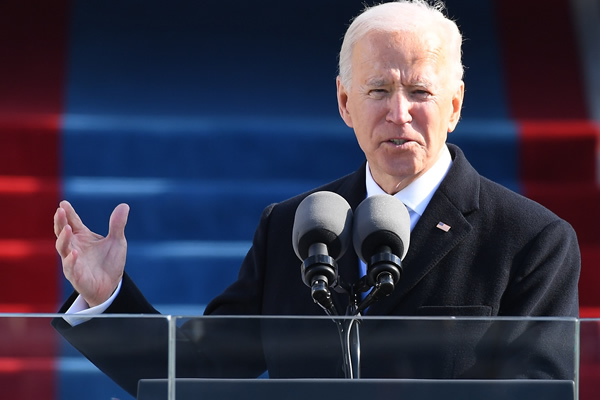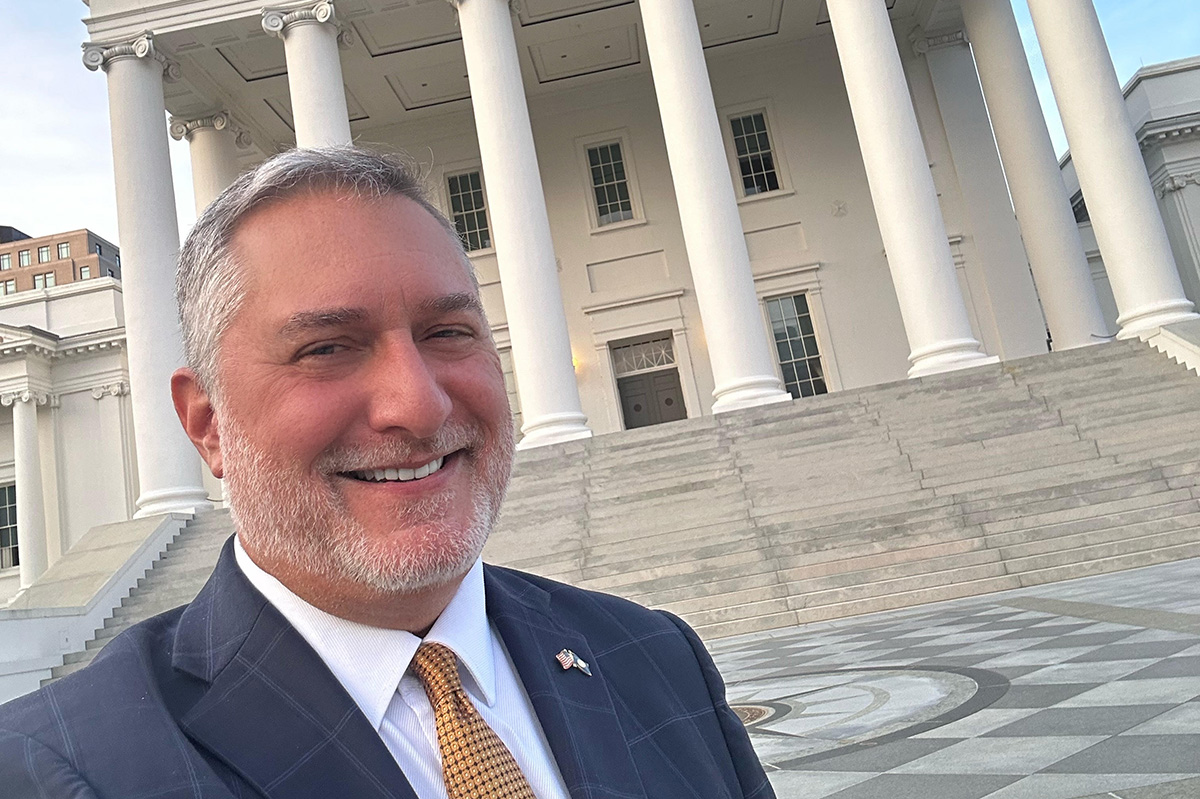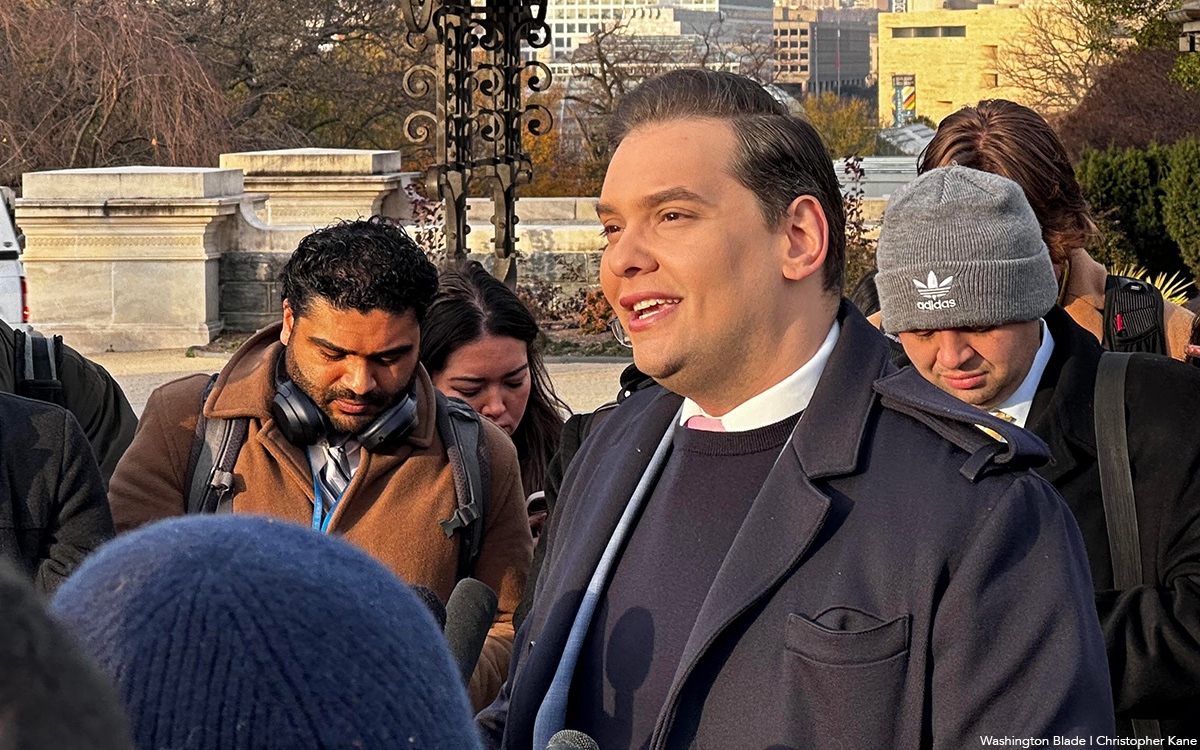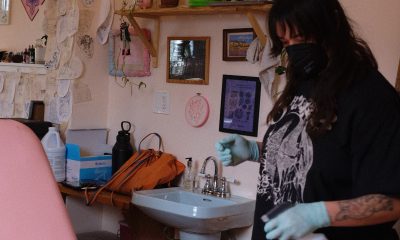News
Biden on Pride Month: ‘Accept nothing less than full equality’
WH proclamation issued after practice ignored during Trump years

President Biden issued the first formal proclamation of his administration recognizing Pride Month on Tuesday, telling LGBTQ people both at home and abroad they should “accept nothing less than full equality.”
Biden’s proclamation kicks off Pride Month by remembering the 1969 riots at Stonewall Inn that started the modern LGBTQ movement, which he said was a “call to action that continues to inspire us to live up to our nation’s promise of equality, liberty, and justice for all.”
“Pride is a time to recall the trials the Lesbian, Gay, Bisexual, Transgender, and Queer (LGBTQ+) community has endured and to rejoice in the triumphs of trailblazing individuals who have bravely fought — and continue to fight — for full equality,” Biden writes. “Pride is both a jubilant communal celebration of visibility and a personal celebration of self-worth and dignity.”
Biden issues a Pride Month proclamation after the practice was abandoned under President Trump, who largely ignored the occasion except for a solitary tweet in 2019. In contrast, former President Obama issued a Pride proclamation each of his eight years in office.
Obama also had a practice of holding an annual reception at the White House with LGBTQ leaders to commemorate Pride Month. The Biden White House, at a time when the nation is reemerging after the coronavirus pandemic, hasn’t said one way or the other whether it will hold a reception.
Biden’s proclamation also ticks off several of the LGBTQ community’s achievements, citing “historic Supreme Court rulings” that brought workplace protections and marriage equality as well as the enactment of the Matthew Shepard & James Byrd Jr. Hate Crimes Prevention Act in 2009, which expanded hate crimes protections under federal law.
Estimating nearly 14 percent of the 1,500 agency appointees in the Biden administration identity as LGBTQ, Biden writes the LGBTQ community is now represented “in nearly every level of public office — in city halls and state capitals, governors’ mansions and the halls of the Congress, and throughout my administration.” Among his LGBTQ appointees are Transportation Secretary Pete Buttigieg and Rachel Levine, assistant secretary of health.
At a time when states have enacted laws against transgender kids’ access to school sports and transition-related health care, Biden writes states have “chosen to actively target transgender youth through discriminatory bills that defy our nation’s values of inclusivity and freedom for all.”
Following the announcement his State Department would make LGBTQ human rights a priority, Biden writes he’s committed to LGBTQ rights both in the United States and overseas, closely tying two global movements to protect and advance democracy.
“LGBTQ+ rights are human rights, which is why my administration has reaffirmed America’s commitment to supporting those on the front lines of the equality and democracy movements around the world, often at great risk,” Biden writes. “We see you, we support you, and we are inspired by your courage to accept nothing less than full equality.”
Biden also name-checks the Equality Act, federal legislation that would expand the prohibition on discrimination against LGBTQ people under federal law, although the legislation is all but dead as it continues to languish in Congress.
“I will not rest until full equality for LGBTQ+ Americans is finally achieved and codified into law,” Biden writes. “That is why I continue to call on the Congress to pass the Equality Act, which will ensure civil rights protections for LGBTQ+ people and families across our country.”
Concluding his proclamation, Biden says Pride Month is a time to recognize “the resilience and determination of the many individuals who are fighting to live freely and authentically.”
“In doing so, they are opening hearts and minds, and laying the foundation for a more just and equitable America,” Biden writes. “This Pride Month, we affirm our obligation to uphold the dignity of all people, and dedicate ourselves to protecting the most vulnerable among us.”
Virginia
Youngkin calls on gay Va. GOP LG candidate to exit race over alleged ‘porn’ scandal
John Reid denounces ‘fabricated internet lie’ as anti-gay smear campaign

Less than a week after John Reid, the conservative gay radio talk show host from Richmond secured the Republican nomination for the office of lieutenant governor in Virginia, sensational allegations have surfaced, which he strongly denies, that he allegedly posted pornographic photos on social media.
According to the Virginia Mercury newspaper, the allegations surfaced when Virginia Gov. Glenn Youngkin’s office released a statement saying Youngkin contacted Reid on Friday, April 25, and asked him to withdraw his candidacy over reports that a social media account with Reid’s username included “pornographic content” that was “shared” with others.
“The governor was made aware late Thursday of the disturbing online content,” the Virginia Mercury quotes a Youngkin spokesperson as saying. “Friday morning, in a call with Mr. Reid, the governor asked him to step down as the lt. governor nominee,” the spokesperson is quoted as saying.
Reid responded to the allegations in an early Friday evening video he posted on his campaign’s Facebook page, calling the allegations “a totally fabricated internet lie” motivated by anti-gay bias.
“I can tell you that’s not my account and anyone on the internet can open accounts with the same or similar names as other people,” he stated in his video. “It’s predictable,” he added.
“But what I didn’t expect was the governor I have always supported to call and demand my resignation without even showing me the supposed evidence or offering me a chance to respond,” Reid states in his video.
He said he will not drop out of the lieutenant governor’s race and called the allegations against him just the latest in what he said was an ongoing effort by some in the Republican Party, especially conservative Christians, to force him out of politics.
“Let’s be honest,” he said. “it’s because I’m openly gay. And I have never backed down to the establishment, and will not,” he continued in his video message. “What happened today is another coordinated assassination attempt against me to force the first openly gay candidate off of a Virginia statewide ticket.”
Reid added, “It’s shameful, and I won’t back down, even though I know the plan is for the attacks to continue in this overt effort to make me toxic.”
Reid secured the GOP nomination for lieutenant governor last week after his only rival in the Republican primary, Fairfax County Supervisor Pat Herrity, dropped out of the race for health reasons.
By securing the nomination Reid became the first known openly gay candidate, Republican or Democrat, to be nominated for a statewide office in Virginia.
In an interview with the Washington Blade earlier this week Reid pointed out that he came out as gay in 1996 or 1997 on National Coming Out Day in his role as TV news anchor in Richmond, where he worked for 10 years.
Following that, Reid worked as a radio talk show host for the next eight years, promoting his ideas as a gay conservative Republican, up until shortly before he announced his candidacy for lieutenant governor, he told the Blade.
Reid’s video responding to the accusations against him can be accessed here.
Reid’s campaign website and statements he has released to the media acknowledge his status as a gay candidate but point out he has a long record of support for conservative Republican positions on a wide range of issues that are against the positions of most mainline LGBTQ rights organizations.
“I’m not a diversity hire,” he stated in a press release issued at the time he announced his candidacy in January. “I’m the most conservative and proven candidate running, and I’ve boldly stood up for our beliefs in a way that should make my personal life a total nonissue,” he stated.
A statement on his campaign website states “John is uniquely positioned to take the fight to the radical progressives head on as he continues his fight against boys in girls’ sports and the extreme trans agenda being forced upon our children.”
His campaign website statement on transgender issues concludes by saying, “And we must be blatant in saying that it is factually impossible for biological men or women to personally decide to change their gender. John believes in the right for grown adults to live their lives as they see fit, but not if they impose restrictions and obligations on others and not if any of their behavior sexualizes or grooms children.
Politics
George Santos sentenced to 87 months in prison for fraud case
Judge: ‘You got elected with your words, most of which were lies.’

Disgraced former Republican congressman George Santos was sentenced to 87 months in prison on Friday, after pleading guilty last year to federal charges of wire fraud and aggravated identity theft.
“Mr. Santos, words have consequences,” said Judge Joanna Seybert of the U.S. District Court for the Eastern District of New York. “You got elected with your words, most of which were lies.”
The first openly gay GOP member of Congress, Santos became a laughing stock after revelations came to light about his extensive history of fabricating and exaggerating details about his life and career.
His colleagues voted in December 2023 to expel him from Congress. An investigation by the U.S. House Ethics Committee found that Santos had used pilfered campaign funds for cosmetic procedures, designer fashion, and OnlyFans.
Federal prosecutors, however, found evidence that “Mr. Santos stole from donors, used his campaign account for personal purchases, inflated his fund-raising numbers, lied about his wealth on congressional documents and committed unemployment fraud,” per the New York Times.
The former congressman told the paper this week that he would not ask for a pardon. Despite Santos’s loyalty to President Donald Trump, the president has made no indication that he would intervene in his legal troubles.
Maryland
A Baltimore theater educator lost jobs at Johns Hopkins and the Kennedy Center
Tavish Forsyth concluded they could not work for Trump

BY WESLEY CASE | Tavish Forsyth had come to a conclusion: They could not work for President Donald Trump.
So the 32-year-old Baltimore resident stripped down, turned on their camera, and lit their career on fire.
“F—— Donald Trump and f—— the Kennedy Center,” a naked Forsyth, an associate artistic lead at the Washington National Opera’s Opera Institute, which is run by the Kennedy Center, said in a video that went viral. The board of the nation’s leading cultural institution had elected Trump just weeks prior as its chairman after he gutted the board of members appointed by his predecessor, President Joe Biden.
The rest of this article can be read on the Baltimore Banner’s website.
-

 Federal Government4 days ago
Federal Government4 days agoHHS to retire 988 crisis lifeline for LGBTQ youth
-

 Opinions4 days ago
Opinions4 days agoDavid Hogg’s arrogant, self-indulgent stunt
-

 District of Columbia4 days ago
District of Columbia4 days agoD.C. police seek help in identifying suspect in anti-gay threats case
-

 Virginia4 days ago
Virginia4 days agoGay talk show host wins GOP nom for Va. lieutenant guv







